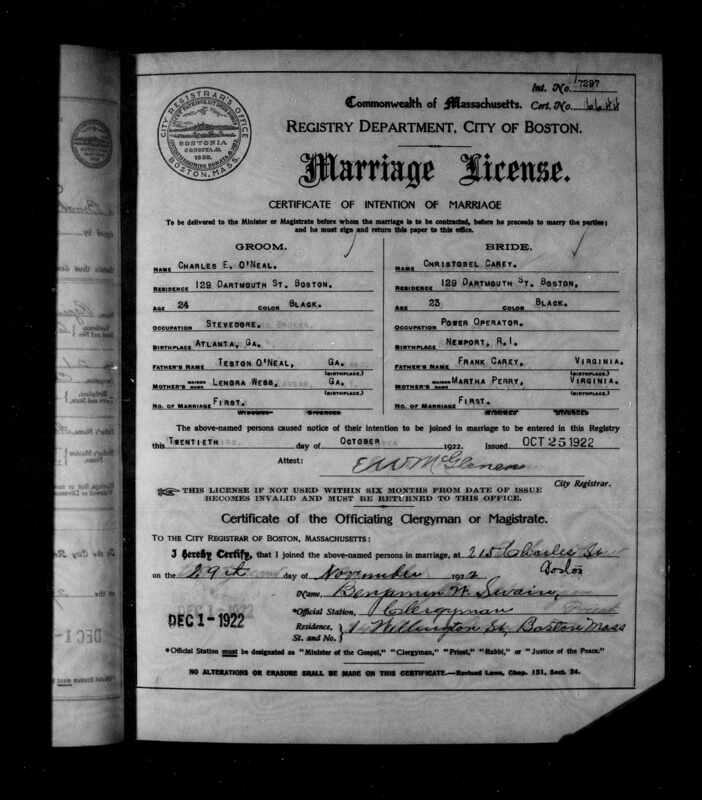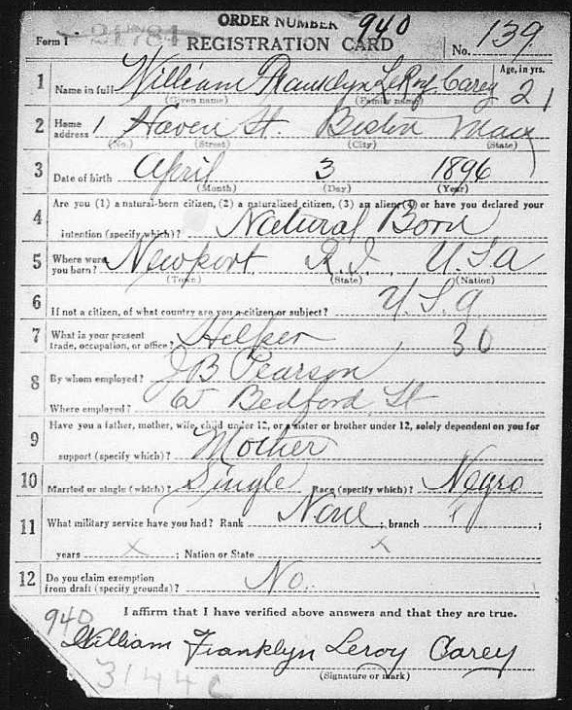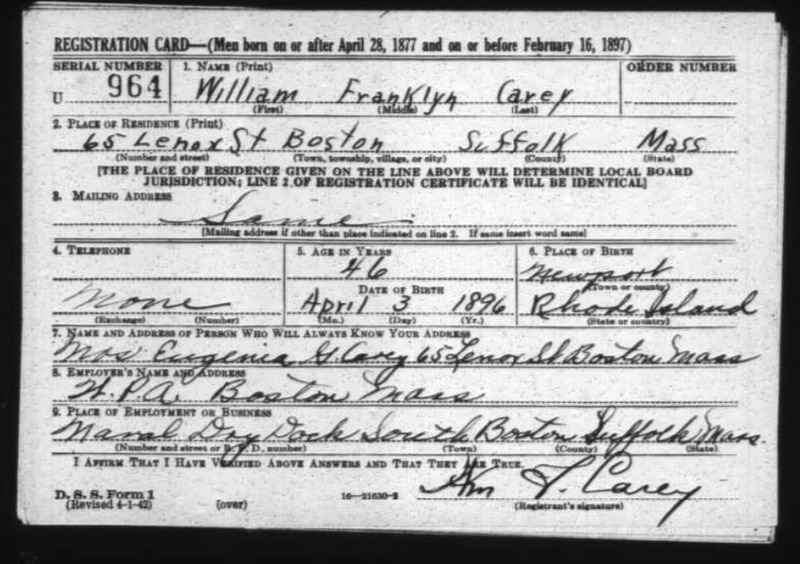Born between about 1898-1900, Christobel Carey appears in Boston in each of the publicly available federal census records from 1910-1940. In 1910, she lived with her parents and three siblings. Her father was a butcher and her mother did not list an occupation. By 1920, however, she and her mother lived alone, and her mother had reverted to using her maiden name of Perry, though she still claimed to be “married,” not “widowed,” on the census. The father does not appear in records after 1910.

Though she had no occupation listed in 1920, by 1930 Christobel was working in a dress factory, and later went on to become an independent dressmaker by 1940. In 1922, she married Charles O’Neal and they had 3 children together. By the time of the 1930 census, however, Charles had been imprisoned in Deer Island House of Correction and worked as a tailor in the clothing room there during his incarceration. By 1940, Charles was out of prison, living with the family, and working as a longshoreman while Christobel worked as a dressmaker. They also kept a lodger, and their oldest child, Stephen, was finishing his fourth year of high school. Neither Christobel nor Charles had been able to attend high school, with both reporting that they had achieved an eighth grade education level.
Her youngest brother Laurence, aged 16 in 1920, was recorded as an inmate at the Suffolk School for Boys on Raineford Island. In a later census, he reported his highest grade completed as seventh. He was drafted into the US Army in 1942 and discharged in 1943 due to a disabling skin condition before having to see action. Interestingly, though he consistently is identified as Black in census records and on his draft card, his race on the discharge paperwork was listed as “white/Mexican (white).”

Christobel’s older brother William was of draft age in both world wars. On his 1917 draft card, he listed his mother as being solely dependent on his income, suggesting that his father was already out of the picture. He served briefly starting in 1919, according to the Veterans Administration Index. In the 1920 census, he was a cook in Guantanamo Bay for the Military and Naval Installation there. Sometime between 1920-30, he returned to Massachusetts, married a woman named Eugenia Burke, and worked as a civilian laborer. The 1930 census classified his work as “odd jobs.” He died in 1947, after being drafted again for military service in WWII, and is buried in Boston’s Mount Hope Cemetery.

Notes
- State Archives, Boston, Massachusetts; "Massachusetts Marriages, 1841-1915," database with images, accessed via FamilySearch.org. https://familysearch.org/ark:/61903/3:1:3Q9M-C9BN-YQR9?cc=1469062.
- United States, Selective Service System. World War I Selective Service System Draft Registration Cards, 1917-1918. Washington, D.C.: National Archives and Records Administration. M1509, 4,582 rolls. Imaged from Family History Library microfilm. Accessed via Ancestry.com. https://www.ancestrylibrary.com/discoveryui-content/view/34065223:6482.
- The National Archives At St. Louis; St. Louis, Missouri; World War II Draft Cards (Fourth Registration) For the State of Massachusetts; Records of the Selective Service System; Record Group Number: 147; Series Number: M2090. Accessed via Ancestry.com. https://www.ancestrylibrary.com/discoveryui-content/view/8912067:1002.
- U.S. Census Bureay; Thirteenth Census of the United States, 1910. Accessed via Ancestry.com https://www.ancestrylibrary.com/search/collections/7884/.
- U.S. Census Bureau; Fourteenth Census of the United States, 1920. Accessed via Ancestry.com https://www.ancestrylibrary.com/search/collections/6061/.
- U.S. Census Bureau; Fifteenth Census of the United States, 1930. Accessed via Ancestry.com https://www.ancestrylibrary.com/search/collections/6224/.
- U.S. Census Bureau; Sixteenth Census of the United States, 1940. Accessed via Ancestry.com. https://www.ancestrylibrary.com/search/collections/2442/.